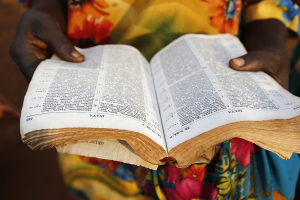The Christian Post's top 10 news stories of 2022 (part 2)

1. Supreme Court overturns Roe v. Wade
After decades of marches, protests and advocacy at the state and federal levels, the pro-life movement finally got to witness the U.S. Supreme Court overturn the landmark 1973 Roe v. Wade decision that legalized abortion nationwide.
In a 6-3 decision on June 24, the Supreme Court ruled in Dobbs et al. v. Jackson Women's Health Organization that the U.S. Constitution doesn't confer a right to abortion.
At issue in Dobbs was the passage of a 2018 Mississippi law known as the Gestational Age Act, which banned most abortions performed after 15 weeks into a pregnancy.
Critics argued that the state law violated the Roe standard barring laws that ban abortions before fetal viability.
Justice Samuel Alito authored the majority opinion and was joined by Justices Clarence Thomas, Amy Coney Barrett, Brett Kavanaugh and Neil Gorsuch. Kavanaugh, Thomas and Chief Justice John Roberts all wrote concurring opinions.
"We hold that Roe and [Planned Parenthood v. Casey] must be overruled. The Constitution makes no reference to abortion, and no such right is implicitly protected by any constitutional provision," wrote Alito.
"Roe was egregiously wrong from the start. Its reasoning was exceptionally weak, and the decision has had damaging consequences. And far from bringing about a national settlement of the abortion issue, Roe and Casey have enflamed debate and deepened division."
The decision returned the ability to enact bans and limits on abortion to the individual states, with the majority declaring that it is "time to heed the Constitution and return the issue of abortion to the people's elected representatives."
Justices Stephen Breyer, Sonia Sotomayor and Elena Kagan filed a dissenting opinion, claiming that Roe and Casey "struck a particular balance" between the "interests of a woman who wants an abortion and the interests of what they termed 'potential life.'"
"Today, the Court discards that balance. It says that from the very moment of fertilization, a woman has no rights to speak of. A State can force her to bring a pregnancy to term, even at the steepest personal and familial costs," the dissent reads.
"The Mississippi law at issue here bars abortions after the 15th week of pregnancy. Under the majority's ruling, though, another State's law could do so after ten weeks, or five or three or one — or, again, from the moment of fertilization. States have already passed such laws, in anticipation of today's ruling. More will follow."
Shortly after the ruling, several states moved to ban abortion in nearly all circumstances, with some critics arguing that state-level abortion bans are against state constitutions.
Roe's reversal opened up a debate within the pro-life movement between "absolutists" — individuals who support banning all abortions regardless of reason — and "pragmatists" or "incrementalists" — those willing to support restrictions on abortion even if that means some abortions will remain legal.
Southern Evangelical Seminary President Emeritus Dr. Richard Land, who serves as executive editor of The Christian Post, wrote a column before Roe was overturned about the divide within the pro-life movement.
In particular, Land saw this debate emerging among his fellow members of the Southern Baptist Convention, a denomination known for its staunch anti-abortion sentiment, going back to its Conservative Resurgence in the 1970s.
Land, who formerly served as the president of the SBC's Ethics & Religious Liberty Commission, cited a resolution from the 2021 SBC Annual Meeting in Nashville, Tennessee, titled "On Abolishing Abortion."
The resolution rejected "any position that allows for any exceptions to the legal protection of our preborn neighbors" and claimed the incrementalist approach "challenges God's Lordship over the heart and the conscience, and rejects His call to repent of sin completely and immediately."
Land rejected the absolute approach, arguing that the pro-life movement saved many unborn children as a result of incremental successes over the decades.
"Should the pro-life movement, incrementalists by political necessity rather than preference, have let these babies die because we could not save all the babies by abolishing abortion?" wrote Land.
"What if I came upon a wrecked school bus that had plunged into a river with 60 children onboard? Since I can't save all of them, should I then do nothing? I think not."
Michael Gryboski contributed to this report





























